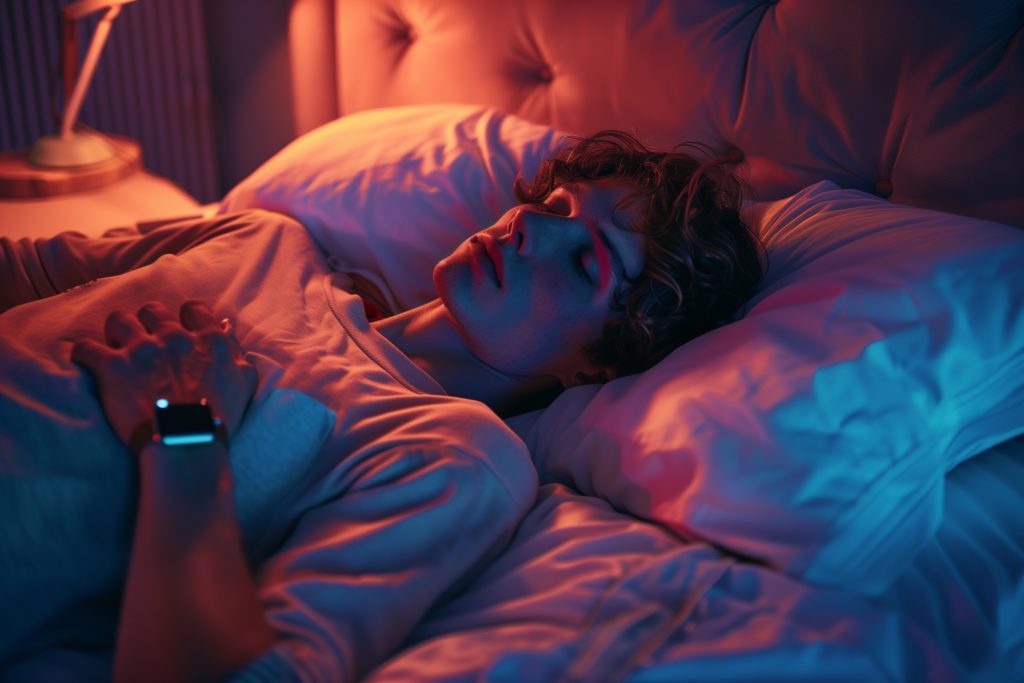
Is Beauty Sleep a Real Thing? The Science Explained
Think beauty sleep is just a myth? Learn how your diet and sleep habits could be the key to unlocking a radiant look.

Optimizing your beauty regimen through diet and sleep
Like many beauty enthusiasts, you've probably spent a small fortune on the latest high-end skincare products, all promising miraculous results. But have you considered that the secret to radiant skin might not be in a bottle but in your bedtime routine and diet? This raises the question: is beauty sleep a real thing?
This post investigates whether getting enough sleep and eating right could be the beauty boosters you've been overlooking. We'll unpack the science behind how quality sleep and proper nutrition can significantly enhance your appearance, often outperforming expensive skincare products.
From the benefits of sleep on your skin's health to the best foods for that natural glow, we're here to guide you on a more sustainable, effective approach to beauty.
The science of beauty sleep
The term "beauty sleep" might sound like old wives' lore, but it's rooted in real, scientific principles. When we tuck in for the night, our bodies switch into repair mode, especially our skin. This is when the growth hormone, which is critical for cell repair and regeneration, really ramps up. It's a vital time for your skin because it's undoing the day’s damage from UV rays, pollution, and other stressors.
Sleep also helps regulate our hormones, including cortisol, the infamous stress hormone. High cortisol levels can accelerate the breakdown of skin proteins like collagen and elastin, leading to wrinkles and saggy skin. A solid night’s sleep keeps cortisol in check, supporting skin that looks firmer and more youthful.
Moreover, skimping on sleep can mess with your body’s hydration balance, which can leave you waking up with puffy eyes and dry, listless skin. Research shows that those who catch enough Zzzs consistently have better skin hydration and more robust skin-barrier function compared to those who don’t.
So, while beauty sleep won’t replace a skincare regimen, it does provide your skin with the optimal conditions for self-repair and health, making it a foundational beauty treatment in its own right.
How to secure the elusive beauty sleep
Considering that about one-third of US adults are sleep deprived, it might seem tempting to splurge on high-end skincare products as a quick fix for your skin. However, improving your sleep might be more beneficial and can often be achieved with a few adjustments to your routine.
Here’s how to refine your sleep routines for better rest and radiance:
Stick to a schedule
Think of your sleep schedule as a daily rendezvous with your pillow—it's not just about warding off those pesky under-eye circles. A regular sleep-wake cycle tunes your body’s internal clock, or circadian rhythms, helping regulate everything from your sleep to your skin’s health.
This regularity cues your brain to release melatonin at just the right time, enhancing your sleep quality and ensuring your skin has the best conditions for overnight repair. Consistently hitting the hay at the same time might just be your skin’s new best friend, so consider using a sleep tracking app to stay accountable.
Create a restful environment
Transform your bedroom into your personal spa retreat. A cool, dark, and quiet setting doesn’t just make for a solid night’s sleep; it’s also a restorative haven for your skin. Less light means more melatonin, and cooler temperatures can help reduce skin inflammation and prevent breakouts. Sleep aids like blackout curtains, air conditioning, and white noise machines can help you create this sanctuary for your beauty rest.
Be mindful of your diet
What you eat before bed can turn your night's rest into a beauty boost. Drinking caffeine and alcohol close to bedtime causes disruptions in your sleep and can even impact your skin's hydration levels. Eating just before bed can also come with consequences, making it harder to fall asleep and triggering nighttime heartburn. But there are certain foods we can eat in the evening, so be sure to scroll down for more insights as nutrition is incredibly important when it comes to beauty sleep.
Engage in a regular wind-down ritual
Since blue light blocks melatonin production, dimming the lights and powering down your gadgets an hour before bed primes your body for sleep. Swap out technology for a good book, warm bath, or even a radiance-maximizing skincare routine, as these activities signal to your brain that it’s time to shift into night mode. This ritual helps you drift off faster into dreamland, paving the way for a fresher face by morning.
Stay active
Physical activity is linked to both better skin and better sleep. It raises your heart rate and body temperature, factors that enhance the depth and restorative quality of your sleep by promoting increases in slow-wave sleep (the restful phase). Exercise also boosts circulation, brightening your complexion and fighting off puffiness. And while it’s proven to reduce stress, helping you decompress and fall asleep easier, just remember to wrap up your workout a few hours before bedtime to let your body and mind wind down.
Embracing these tips might just transform your sleep into a powerful ally for your beauty routine. Think of it as nighttime self-care that leaves you glowing, inside and out.
Nutritional tips to enhance beauty sleep
As we mentioned above, good sleep starts on your plate. What you eat can significantly influence how well you sleep, and by extension, how good you look in the morning.
Here's how you can tweak your diet to boost both your sleep quality and your skin's health:
- Boost melatonin with the right foods
Certain foods naturally increase your body’s melatonin levels, which can help regulate your sleep cycle. Cherries are one of the few natural sources of melatonin, while bananas not only provide this sleep-promoting hormone but also contain magnesium and potassium which help relax muscles. Oats and nuts, especially almonds and walnuts, are also excellent evening snacks as they help boost melatonin levels.
- Regulate sleep with magnesium and vitamin B
Magnesium is a powerhouse mineral for sleep, aiding in calming the nervous system and preparing your body for restful sleep. Foods rich in magnesium include leafy greens, seeds, and whole grains. Meanwhile, B vitamins play a vital role in regulating tryptophan levels, which the body converts into serotonin and then melatonin. Lean meats, eggs, and dairy products are good sources of vitamin B that can help stabilize your sleep patterns. - Stay hydrated for healthy sleep and skin
Proper hydration is key for maintaining the elasticity and moisture of your skin, which can translate into a fresher appearance. But did you know that hydration also affects sleep? Being adequately hydrated reduces the chances of sleep interruption from thirst or dry mouth and helps your body's natural detox processes during sleep. Aim for steady hydration throughout the day, but moderate your intake close to bedtime to minimize nocturnal bathroom visits.
The bottom line? Research suggests that incorporating these dietary tips can make a significant difference in the quality of your sleep and, by extension, enhance your natural beauty.
Bonus: Foods that promote a healthy glow
Eating for skin health isn't just about avoiding breakouts—certain foods can actively enhance your skin’s elasticity, reduce signs of aging, and give you that sought-after glow.
Here’s what to add to your grocery list:
- Antioxidant-rich berries: Blueberries, strawberries, and raspberries are loaded with antioxidants that fight off free radicals, which can damage skin cells and contribute to aging. Regularly snacking on berries can help keep your skin firm and youthful.
- Healthy fats from fish and nuts: Fatty fish like salmon and mackerel are rich in omega-3 fatty acids, which are crucial for maintaining skin health. Omega-3s help keep skin thick, supple, and moisturized. Walnuts are another great source, providing both omega-3 fatty acids and antioxidants.
- Vibrant vegetables: Carrots, spinach, and other leafy greens are high in beta-carotene and vitamin E, which can protect your skin from UV radiation and environmental stressors. These nutrients also play a role in maintaining skin texture and elasticity.
- Protein-packed foods: Lean meats, tofu, and legumes like beans and lentils support the repair and regeneration of skin cells thanks to their high protein content. Proteins are essential for collagen production, which keeps your skin robust and resilient.
Incorporating these foods into your diet not only supports overall health but also enhances your skin's natural beauty. Whether it's through smoothies, salads, or main dishes, adding these skin-friendly foods can lead to visible improvements in your complexion and contribute to a healthier, more radiant glow.
Rest well, eat right = the real beauty ritual
As we wrap up, remember: real beauty isn't just skin deep—it starts from within. Good nutrition paired with quality sleep can do wonders for your complexion. Play around with the tips we've shared; tweak them to fit your lifestyle and goals. It's all about finding what works for you, helping you wake up not just refreshed, but radiant. Who knew your kitchen and pillow could be better than that 7-step skincare regime?

Written by
Georgia Austin
Professionally trained copywriter, editor, and content marketing strategist with over 7 years of experience—working with brands like Nike, Siemens, Toshiba, Tommy Hilfiger, Culture Trip, and Klook.
Download Pillow
Get help
Press & News
Legal
Connect
X (Twitter)
Company
Copyright © Neybox Digital Ltd.



